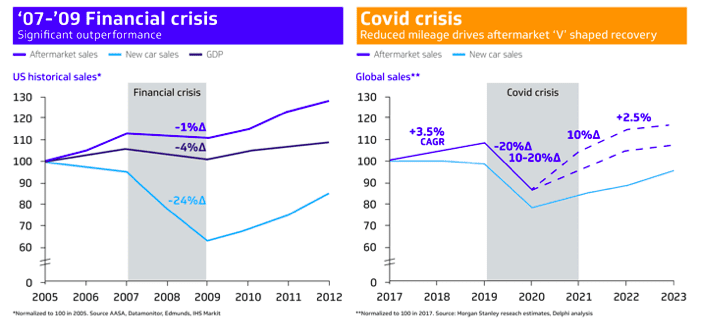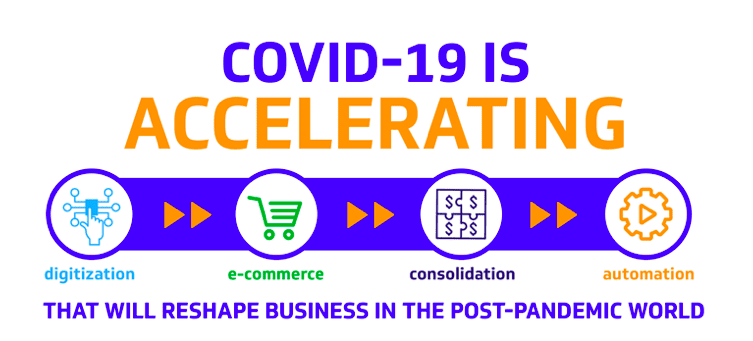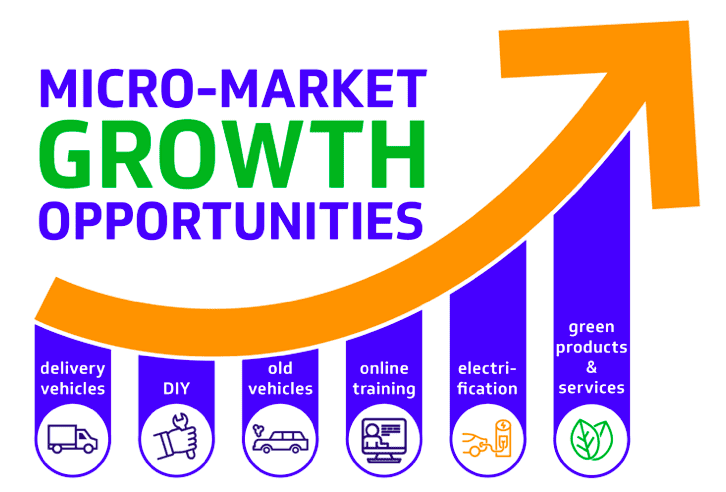Ashmore is Senior Vice President and President Aftermarket and in this interview, he talks about COVID-19 and how it has affected the world as we know it.
You can also find this on the Delphi website, but we were given permission to use this on our website news. It is done in a question and answer format.
Q: The coronavirus pandemic has been a once-in-a-lifetime event that has changed the world in unprecedented and unpredictable ways. In what way has it impacted the auto industry in regards to the aftermarket?
Alex: I’ve been in this industry for 30 years, in multiple different regions from Europe to Asia, to now leading Delphi Technologies’ global aftermarket. I’ve seen many ups and downs in the industry throughout my career, the worst before this being the financial crisis of 2007-2009, which showed us how resilient the aftermarket can be. Within those two years, I witnessed new car sales plummet by 42% in the United States, while aftermarket sales saw a decrease of only 1%.

Q: The personal vehicle sector has obviously been most impacted so far, but how are other automotive sectors fairing during lockdowns?
Alex: Interestingly, commercial vehicles and agricultural markets are not changing much. There are many brave people who have continued to work in order to keep essential services flowing and key workers moving. Consumers are also choosing home delivery services for essential supplies. Because of this, we see an increase in motorcycle and van finance.
I think we may also see a resurgence of green products like remanufactured parts too, as people exit the crisis with a more caring view of the world and governments use the opportunity to boost these areas of the economy.
Q: Will the automotive industry have to rethink how they operate and conduct business in a post-pandemic world?
Alex: Absolutely. The auto industry was already moving toward digitization, and the pandemic has sped up the process. We can see a ‘step change’ in online motor retail with a shift away from showroom-based interaction that will last into the long term. Car dealers are upgrading their online presence and selling cars virtually right now. Online service booking alone is expected to increase by 32%, while online part sales are maintaining a 64% increase from last year. (These are American figures.)
They may never go back to the traditional ways of doing business. Auto part stores and distributors are also seeing a significant increase in consumers using e-commerce. Even in the supply chain, we see how social distancing has created a need for automation and consolidation in production and warehouses to reduce the risk of infection.
We know the auto industry is moving toward electrification and autonomy, and that will continue although it’s becoming clear that manufacturers will choose to double down on green choices and electrification at the expense of autonomous driving investments in the short term. A move towards sustainability and greener mobility is not only driven by consumers but also governments. This would include the concept of the ‘clean, green’ workshop or garage.

COVID-19 is accelerating the move towardsdigitization, e-commerce, consolidation, and automation in the auto industry that will reshape business in the post-pandemic world.
Q: Independent workshops and garages are a huge part of the aftermarket and rely heavily on personal vehicle repair and maintenance. How do you see the pandemic affecting this sector of the business?
Alex: Overall we have seen fewer people on the roads and lower vehicle miles traveled, which reduces the need for maintenance, although traffic levels are increasing again now in many countries. With fewer cars on the road, there are fewer collisions and accidents which means less business for crash repair shops.
But we can also seean increase in private car use due to low fuel prices and reluctance to use public transportation. Certain business sectors may have decreased due to a change in consumer habits, but these seemingly lost opportunities have only just shifted into different markets.

Delivery vehicles, DIY, old vehicles, online training, electrification, green products, and services – now is time to look for these micro-market growth opportunities and tilt your marketing and other investments.
Take time now to join online training sessions that are focused on these emerging technologies to upskill in the downtime. Garages might want to look for more value added services generated by such as pulling data out of vehicles and joining up diagnostics, parts and services for a seamless consumer solution. Above all, make sure your employees and customers feel safe with revised health and safety protocols, cleaning, travel, and personal protective equipment.
Q: The aftermarket industry had seen rates of do-it-yourself repairs for many types of jobs decreasing as vehicles become more complex. Do you see this changing now?
Alex: It is true that year over year we see less do-it-yourself repairs as vehicles become complex. However, we’ve seen auto parts and accessories sales from individual consumers increase during lockdowns. People now have more time to spare due to lockdowns. This, paired with the convenience of online shopping, means they can do the repairs themselves with video support and save some money doing it.
This may not be a long term change, but something that suppliers and distributors should be aware of to help generate brand awareness and support consumer trust.
Q: Final question: As an aftermarket leader, what are your set of priorities during this uncertain time? Can you offer any advice to other leaders?
Alex: First and foremost, protect your people and related customers and stakeholders.
Set up for a future where your people and organization are resilient and agile, and invest in technologies and infrastructure to support remote work and virtual collaboration. As many companies are ramping back up, a safe return to work with revised health and safety focus, cleaning, business travel policies, and the need for personal protective equipment.
Second, I see the need to improve and tilt marketing and go-to-market plans.
Routes to market will evolve and we need to adjust quickly by enabling digitization more and more from front end areas of sales, marketing, technical support, and also the back end to help deliver excellent service. Again, we need to look for the micro-market growth opportunities and tilt our marketing and other investments – delivery vehicles, old vehicles, online training, DIY, electrification, green products, and services. Then, join up diagnostics, parts, and services for a seamless consumer solution.
Last is collaboration. We are all in this together.
The automotive industry’s cash constraint this year will make it difficult to fund necessary investments for the future, but we together should take educated risks with cautious optimism regarding stock and capacity levels so we activate the business again. Supply chains will shift as the vulnerability of over-reliance on a single country or vendor and delayering is necessary. Let’s plot a path forward once lockdown regulations start lifting and create mutual plans to make sure the aftermarket bounces back as quickly as possible.
As for advice, we need collective efforts by all aftermarket leaders to protect our businesses and economies. The world after COVID-19 will be defined by the actions we take. We as leaders have an obligation to mitigate the overall economic repercussions and the employment impact of this pandemic.Let’s work together to reshape the future of the aftermarket.



